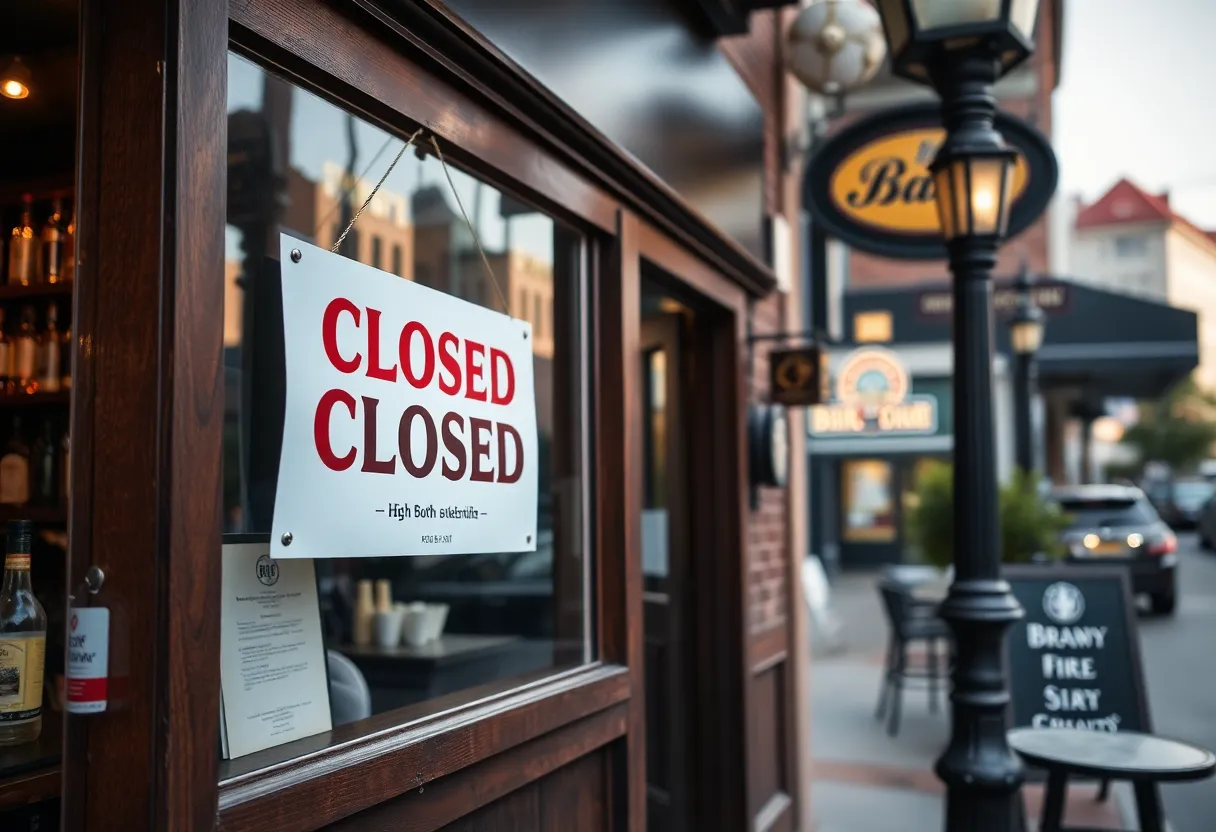News Summary
In South Carolina, lawmakers are considering changes to liquor liability laws as insurance rates skyrocket, endangering local bars and restaurants. State Senator Ed Sutton has proposed a bill to amend existing laws, addressing the financial burdens many small businesses face due to increased premiums. The 2017 legislation requiring a minimum insurance policy has driven some insurers out of the market, leaving establishments struggling to find coverage. If changes are not made soon, the economic landscape could shift significantly, favoring larger chain restaurants over local businesses.
South Carolina lawmakers are actively considering changes to liquor liability laws in response to soaring insurance rates that threaten the survival of local bars and restaurants. The dramatic rise in insurance premiums has reportedly prompted several businesses to close, with some facing premiums that have doubled for the upcoming renewal period in 2024.
Newly elected State Senator Ed Sutton is proposing a bill aimed at amending the state’s liquor liability laws and reevaluating the criteria used for determining liability. This initiative stems from the significant pressures that small business owners are under, a situation worsened by legislation enacted in 2017. Under the 2017 law, businesses serving alcohol after 5:00 p.m. are mandated to obtain a minimum insurance policy of $1 million, which has increasingly become a financial burden.
In the wake of this law, many insurers have exited the South Carolina market, while others have raised their rates substantially, leaving bar owners struggling to find affordable coverage. Problems have been exacerbated for owners like Zach Dennis, who manages a bar as well as an insurance agency, noting that some clients are forced to choose between renewing their insurance or shutting down their operations entirely.
One such establishment, The Brew Cellar, is set to close on February 17, just two days after celebrating its 11th anniversary. The decision to close is largely attributed to the financial pressure stemming from the stringent liquor liability requirements. Business owners, including Dennis, report that even with stringent operational practices in place, they face prohibitively high six-figure costs for liability insurance.
Senator Sutton is striving to find a balance that would allow local businesses to thrive while ensuring victims of alcohol-related incidents receive adequate compensation for their injuries. However, this approach has raised alarms among victim advocates, who caution against altering laws that provide a safety net for victims seeking reparation for incidents.
The argument for reform stems from the broader economic challenges facing small business owners today, many of whom claim that without legislative changes, their businesses may not survive. Senator Sutton envisions presenting the proposed legislation to the governor by May; however, there are concerns that this may come too late for many establishments already struggling financially.
In addition to the specific issues faced by local bars and restaurants, there are fears that if high insurance costs persist, this may result in an increase in large chain restaurants entering the market, potentially undermining the small business culinary landscape, particularly in areas like Charleston.
A late-session agreement on liquor liability insurance reforms reached on May 6 offers some hope to bars and music venues grappling with high costs. This agreement represents a compromise between the state House and Senate and aims to reform joint and several liability laws governing bars and taverns. Notably, the proposed bill includes broader tort reforms that extend across various sectors, including medical malpractice and trucking, uniting multiple industry needs under a single legislative effort.
While the House had favored a more focused approach specifically targeting liquor liability insurance, the Senate’s preference leaned towards comprehensive reforms applicable to several industries. Limited relief is anticipated for bars and restaurants impacted by high insurance costs, and if the legislation passes, the effective date for these reforms is targeted for January 1.
Supporters and detractors alike highlight the ongoing tension between the rights of victims and the essential interests of businesses striving to keep their doors open in an increasingly challenging economic landscape.
Deeper Dive: News & Info About This Topic
- Charleston Business: SC Liquor Liability Insurance Reform
- Post and Courier: South Carolina Liquor Liability
- ABC News 4: Business Forced to Close
- Count On 2: SC Lawmakers Reach Compromise
- Wikipedia: Liability Insurance

Author: STAFF HERE FLORENCE WRITER
The FLORENCE STAFF WRITER represents the experienced team at HEREFlorence.com, your go-to source for actionable local news and information in Florence, Florence County, and beyond. Specializing in "news you can use," we cover essential topics like product reviews for personal and business needs, local business directories, politics, real estate trends, neighborhood insights, and state news affecting the area—with deep expertise drawn from years of dedicated reporting and strong community input, including local press releases and business updates. We deliver top reporting on high-value events such as the Florence Festival of Lights, Pee Dee Pride, and agricultural expos at the Florence Center. Our coverage extends to key organizations like the Florence Regional Chamber of Commerce and the Pee Dee Area Council of Governments, plus leading businesses in healthcare and retail that power the local economy such as McLeod Health and Pee Dee Electric Cooperative. As part of the broader HERE network, including HERECharleston.com, HEREColumbia.com, HEREGreenville.com, and HEREHiltonHead.com, we provide comprehensive, credible insights into South Carolina's dynamic landscape.





